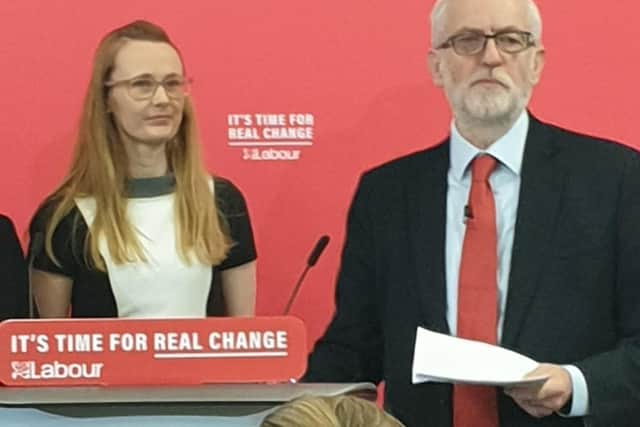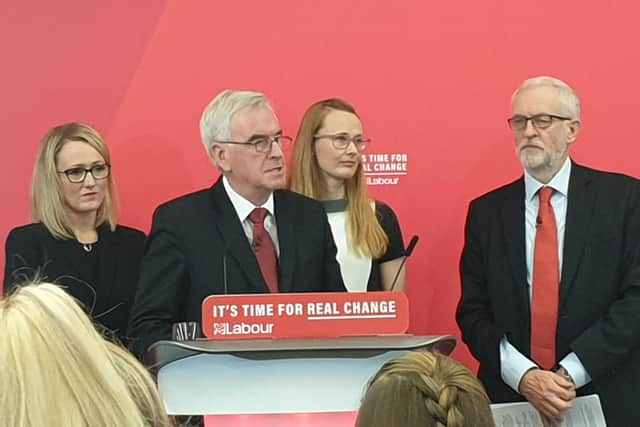Labour leader Jeremy Corbyn visits Lancaster to unveil ambitious proposal for countrywide fibre broadband roll-out


Mr Corbyn was joined by Lancaster and Fleetwood parliamentary candidate Cat Smith to announce plans to deliver fast and free full fibre broadband for all by bringing parts of BT into public ownership and creating a new British Broadband public service.
He described the new free service as central to Labour’s plans to transform the country and economy, “bringing communities together in an inclusive and connected society.”
Advertisement
Hide AdAdvertisement
Hide AdUnder the proposals, a Labour government would undertake a massive upgrade of the UK’s internet infrastructure, delivering fast, secure, reliable internet connections for everyone and putting an end to patchy and slow coverage. This would also boost 5G connectivity across the country.


The 10-year roll out would begin with communities that have the worst broadband access, including rural and remote communities and some inner city areas, followed by towns and smaller centres, and then by areas currently well-served by superfast or ultrafast broadband.
Mr Corbyn said the plan would be paid for through Labour's Green Transformation fund and by taxing multinational corporations such as Amazon, Facebook and Google, and would save the average person £30.30 a month.
Also speaking at today's conference, Shadow Chancellor John McDonnell said that just 8-10 per cent of homes in the UK are connected to full fibre broadband, compared to 97 per cent in Japan and 98 per cent in South Korea.
Advertisement
Hide AdAdvertisement
Hide AdThe issue is one which many residents across the Lancaster district have been concerned with in recent years, leading some to launch their own B4RN broadband service in rural areas.


"In areas like [the Lancaster district] this would transform people's lives," Mr McDonnell said. "People want to live in a beautiful area but the jobs aren't there because the infrastructure is so poor.
"In a place like this, it means there will be an economic benefit, an environmental benefit and a social benefit."
Mr Corbyn said: “A new public service delivering the fastest broadband free to everyone is at the heart of Labour’s plans to transform the future of our economy and society.
Advertisement
Hide AdAdvertisement
Hide Ad“The internet has become such a central part of our lives. It opens up opportunities for work, creativity, entertainment and friendship. What was once a luxury is now an essential utility.
“That’s why full fibre broadband must be a public service, bringing communities together, with equal access, in an inclusive and connected society.
"It will open up opportunities for everybody and put us at the cutting edge of change. That's what we are about - building a country that's fit for the future."
Mr Corbyn said rural areas such as parts of the Lancaster district would be among those prioritised for the roll out.
Advertisement
Hide AdAdvertisement
Hide Ad"I would see this as a priority and very much within the early years for remote areas," he said. "There are small businesses that want to expand into rural areas that just can't at the moment.
"This is a huge project and I am very proud of it. Most other countries are well ahead of us and it's about time we caught up with them."
Mr Corbyn said the plans could also result in 300 million fewer commuting trips, three billion fewer kilometres travelled by car, and 360,000 tonnes fewer carbon dioxide emissions.
Also at the conference was Rebecca Long-Bailey, Labour’s Shadow Business Secretary, who said: “If we are to be at the forefront of the Fourth Industrial Revolution and a global economic player, we must speed up the adoption of technologies across our economy.
“But this can only be done if the best possible digital infrastructure is in place.”